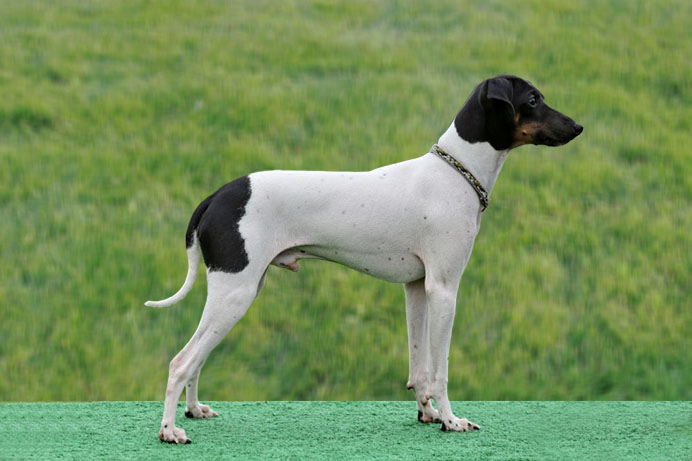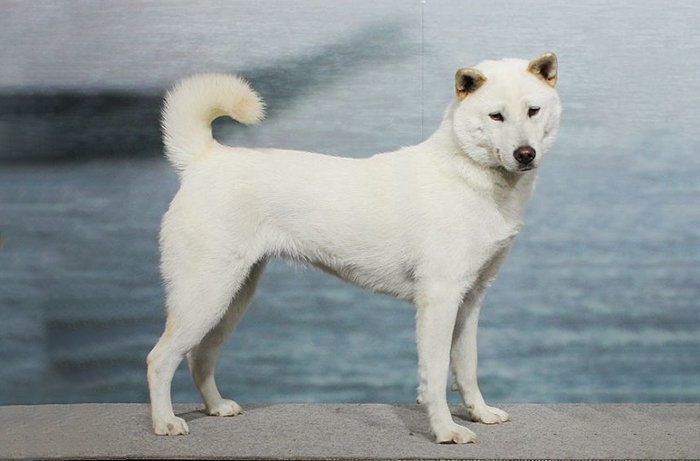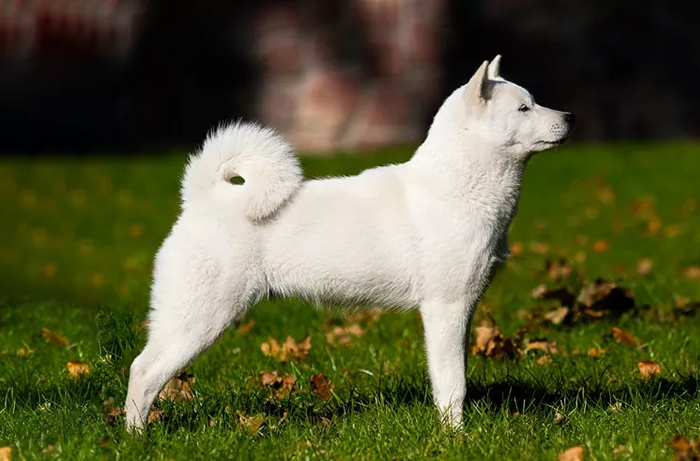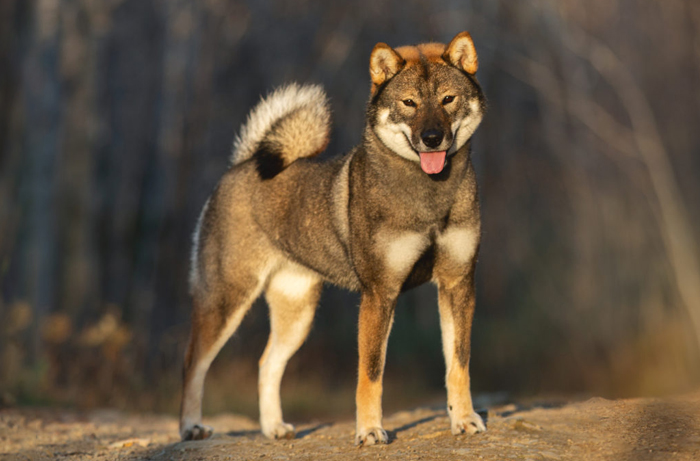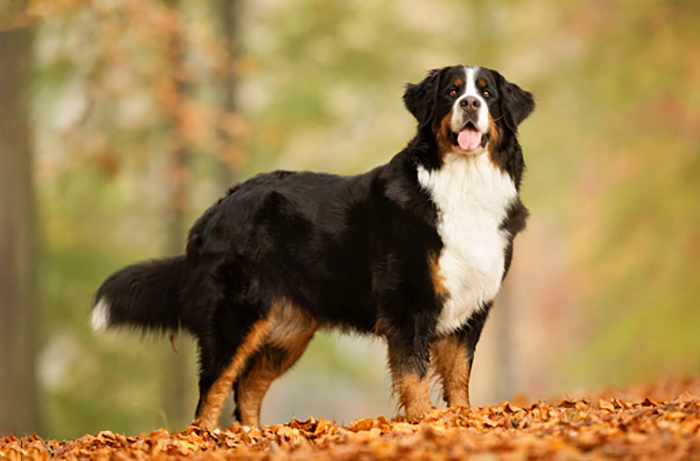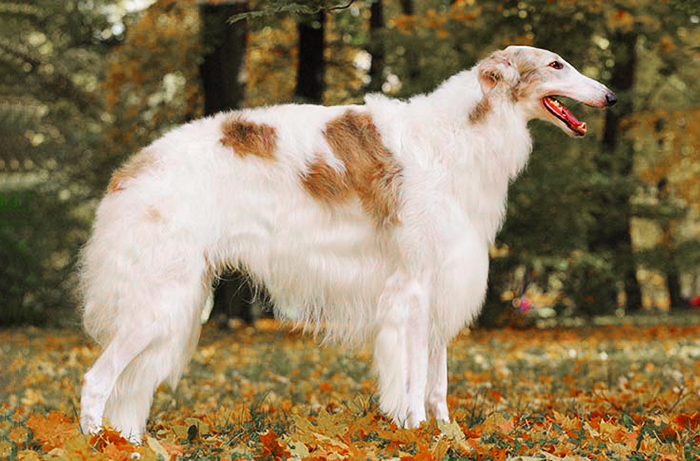Menu
KAI KEN
skilled hunter, devoted companion and trustworthy watchdogJust fill out your Name and the Email.
The message has already been written.
Note: We will send you a confirmation email right after you submit it. If you haven’t seen the confirmation email within 5 minutes even in spam. That means your typed email address has a typo. Please re-confirm your email and re-send it to us. Thank you!
Some FAQs about Kai Ken
The Kai Ken is a medium-sized dog and is one of the six native Japanese breeds or Nihon Ken. Traditionally used to hunt a wide range of game in the mountains of Japan, the Kai Ken is considered a rare breed even in Japan. The Kai is highly intelligent and learns quickly.
The Kai Ken is known for its friendly and high-energy personality and it forms very close bonds with its family. As a general rule, Kai Kens typically do very well with kids and other dogs and aren’t known for showing aggressive behavior to other dogs.
Being a loyal, amiable, and affectionate dog, the Kai Ken usually does well with respectful children and other dogs, especially if properly socialized at an early age.
The Kai Ken (甲斐犬, also called the Tora Inu or Tiger Dog) is a breed of dog from Japan, where it is a national monument. It is a rare dog even in its native land and is one of the six native Japanese dog breeds protected by the Nihon Ken Hozonkai.
Kai Ken can live 12 to 16 years if they live a healthy lifestyle, get proper nutrition, and receive general medical care.
The breed again is near extinction, even in its native land. No one really knows why even in Japan the breed is rare other than that it may be too large of a dog for many residents to keep in small homes and apartments, especially in Tokyo. But there aren’t many puppies available in the U.S., either, and there are hardly any dogs that can be brought to the States from Japan for breeding. In addition, even when Kai Ken mothers have litters, they are small—about four pups, which means there’s a long wait for a puppy.
This breed does not become aggressive when facing strangers, but it will become very watchful and then bark to alert you if something seems amiss or there are intruders.
This affectionate dog is extremely devoted to its family and requires a fair amount of love and attention from their owner in order to be happy. However, the Kai Ken is often likely to attach himself to one member of the family. For all his watchfulness and protective nature, he is rarely aggressive.
How to buy Kai Ken in Japan?
STEP 1: Contact Us via:
To get the fastest response, we recommend you message us via Whatsapp.
STEP 2: Tell us you want a Kai Ken and we are happy to hear more about other details like: gender, coat color, your expense, and your special request if you have one.
To save time, let fill out the form below with something like: Hello! or I need a dog. and that is enough to start our good cooperation.
*Please Note: It is difficult to know which breeder is trustworthy when you are in another country. But fortunately there are reputable associations that can guarantee the quality of breeders who are members of their association. These can be mentioned as Japan Kennel Club – JKC, The Kennel Club of Japan – KC or Nihonken Hozonkai – 日保 and many other associations (JABC, JCC, ICC, CPRO, JCU, KCP, ACC, CCJ, KCC, NMSA, WCA, JMSA, ZCC). Dogs and Cats sold by breeders belonging to these associations are always accompanied by a pedigree certificate.
JP-Pets will act on your behalf, carry out the necessary export procedures quickly, accurately and professionally to ensure that the dog can be delivered to your hands. About exporting methods, you can see more here: Exporting Methods.
Talk to us and get a free consultation from our experts.
KAI KEN
Kai Ken
One of the oldest and purest of Japan’s native dog breeds, the Kai was given the status of “national treasure” in 1934. An active and athletic hunter, used to running in packs, this dog may settle reasonably well into being a home companion but is not recommended for a novice owner.
Of all the different breeds of Japanese native dogs, the Kai is perhaps the most unusual-looking, and it is still quite rare in Japan. It is on the small side for a medium-sized Japanese dog, almost midway between the medium- and small-sized categories; like the Hokkaido, there is some argument about whether the Kai is too small to properly be called medium-sized. Its most distinctive feature is its brindle coat, known in Japanese as torage, or “tiger fur,” because of which the dogs are sometimes referred to as Tora Inu (“tiger dogs”) or Kai Tora (“Kai tigers”). The coat colors can be divided into three types according to the color and shading of the dark stripes: black brindle (kuro tora), red brindle (aka tora), and medium brindle (chu tora), but black brindle is genetically dominant.
Puppies are usually born with fuzzy black coats and develop their brindle pattern with age. It can take as long as five years to come in fully after shedding has occurred several times. The black parts of the brindle should be soft black, and the edges of the stripes should not be sharply defined.
Kai dogs were once used in hunting, and they originally came from present-day Yamanashi Prefecture formerly known as Kai no kuni before spreading to the Southern Japan Alps, and their name comes from their place of origin. The dogs can be divided, depending on the game that they were trained to hunt, into categories of wild boar Kai and deer Kai.
Kai is thought to have originated in the village of Ashiyasu in Nakakoma- gun in Yamanashi Prefecture. This is a remote and inaccessible village made up of hunting families; its very survival depended on having fierce, intrepid dogs capable of working in small packs, and in turn, the villagers were devoted to the dogs as an integral part of their lives. All these factors probably help explain the high degree of purity of the Kai and the stability of the breed. The Kai has designated a Protected Species in 1934, earlier than any other medium-sized Japanese dog.
In temperament the Kai, like most Japanese breeds, is a one-person dog: rather than becoming attached to an entire family, it is a dog that tends to be closest to one owner. It is said that if a Kai’s master were ever in danger, the Kai would fight to the death, if necessary, to save him. In addition to its imposing physical form, it has a keen and watchful manner, an inborn ability to work with other Kai in a pack and to guard a home, remarkable alertness, and an indomitable will. However, the Kai is a natural hunters (some Kai are still used for hunting) and should never be allowed off-leash, except in a fenced yard.
Kai needs firm and loving training by a patient owner. But once a bond of trust is established, the Kai becomes the best companion dog anyone could hope for. To achieve this, the Kai should be exposed to new places and people from puppyhood well into adulthood and taken to training classes. The breed leams quickly and has good powers of judgment: some Kai has been trained as rescue dogs. The Kai may look wild, but it is said to be very good at understanding its owner’s feelings.
Looking for more of other Dog breed information
JAPANESE TERRIER independent, active, crisp, and lively I <3 Japanese Terrier! The quick message here! Just …
HOKKAIDO DOG skilled hunter, devoted companion and trustworthy watchdog I <3 Hokkaido Dog! The quick messag …
SHIKOKU INU intelligent, loyal and alert I <3 Shikoku Inu! The quick message here! Just fill out your Name …
…
BERNESE MOUNTAIN DOG sweet, calm and easygoing I <3 Bernese Mountain Dog! The quick message here! Just fill …
<a class="" …

